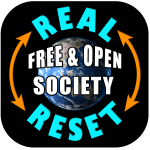Sounds of SAND is a podcast from Science and Nonduality which contemplates and reveres the beauty, complexity, pain, and great mystery that weave the infinite cycles of existence.
We explore beyond ultimate truths, binary thinking, and individual awakening while acknowledging humanity as a mere part of the intricate web of life.
Episodes tap into SAND’s rich history and collaborative future by presenting talks, dialogs, interviews, readings, music, and recordings from SAND Conferences, events, and webinars weaving timeless wisdom and embodied experience.
https://scienceandnonduality.com/podcast
🎧 Subscribe on Apple Podcast, Spotify, and more: http://pod.link/soundsofsand
“For now, what is important is not finding the answer, but looking for it.”
― Douglas R. Hofstadter, Gödel, Escher, Bach: An Eternal Golden Braid
https://www.goodreads.com/book/show/24113.G_del_Escher_Bach
Donald Hoffman is a cognitive scientist and author of more than 100 scientific papers and three books, including Visual Intelligence: How We Create What We See (W.W. Norton, 2000). He received his BA from UCLA in Quantitative Psychology and his Ph.D. from MIT in Computational Psychology. He joined the faculty of UC Irvine in 1983, where he is now a full professor in the departments of cognitive science, computer science and philosophy. He received a Distinguished Scientific Award of the American Psychological Association for early career research into visual perception, the Rustum Roy Award of the Chopra Foundation, and the Troland Research Award of the US National Academy of Sciences. He was chosen by students at UC Irvine to receive a campus-wide teaching award, and to be included in Who’s Who Among America’s Teachers.
Hoffman studies visual perception, visual attention and consciousness using mathematical models, computer simulations, and psychological experiments. His empirical research has led to new insights into how we perceive objects, colors and motion. His theoretical research has led to a “user interface” theory of perception, which proposes that natural selection shapes our perceptions not to report truth but simply to guide adaptive behavior; this is the subject of his TED Talk entitled “ Do we see reality as it is ?” and of an article in The Atlantic entitled “ The case against reality .” It has also led to a “ conscious realism ” theory of consciousness—which proposes a formal model of consciousness and a new solution to the mind-body problem.
Rupert Spira lives in the UK and holds regular meetings and retreats in Europe and the U.S. In these meetings he explores the perennial non-dual understanding that lies at the heart of all the great religious and spiritual traditions, such as Advaita Vedanta, Kashmir Shaivism, Hinduism, Buddhism, mystical Christianity, Sufism and Zen, and which is also the direct, ever-present reality of our own experience. It is a contemporary, experiential approach involving silent meditation, guided meditation and conversation, and it requires no affiliation to any particular religious or spiritual tradition. All that is needed is an interest in the essential nature of experience, and in the longing for love, peace and happiness around which most of our lives revolve.
Rupert is author of The Transparency of Things – Contemplating the Nature of Experience (2008); Presence, in two volumes: The Art of Peace and Happiness and The Intimacy of All Experience (2012); The Light of Pure Knowing – Thirty Meditations on the Essence of Non-Duality (2014); The Ashes of Love (2016); and Transparent Body, Luminous World – The Tantric Yoga of Sensation and Perception (2017). Forthcoming titles include The Nature of Consciousness – Essays on the Unity of Mind and Matter (2017) and The Essence of Meditation – Being Aware of Being Aware (2017).
https://rupertspira.com/
Topics:
00:00:00 – Introduction
00:03:30 – What’s at the Your Current Edge?
00:10:35 – Is the Mind the Right Instrument for Exploring Consciousness?
00:18:52 – Resting in the Unknown and What Is Understanding, The Ultimate Science?
00:26:44 – What Does the Ego Want?
00:37:00 – Why Does the One Let Itself Go Unconscious?
00:52:00 – What Are The Limits of Language and Thoughts to Express Consciousness?
00:56:56 – The Amplitudhedron and Beyond
01:02:00 – How Can We Perceive Outside of Spacetime?
01:16:39 – Spiritual Bypassing: Awakening and Transcending
Previous Episode with Simon Mundie: The Convergence of Science and Spirituality | Donald Hoffman & Rupert Spira
Science and Nonduality is a community inspired by timeless wisdom, informed by cutting-edge science, and grounded in direct experience. We come together in an open-hearted exploration while celebrating our humanity.
source
